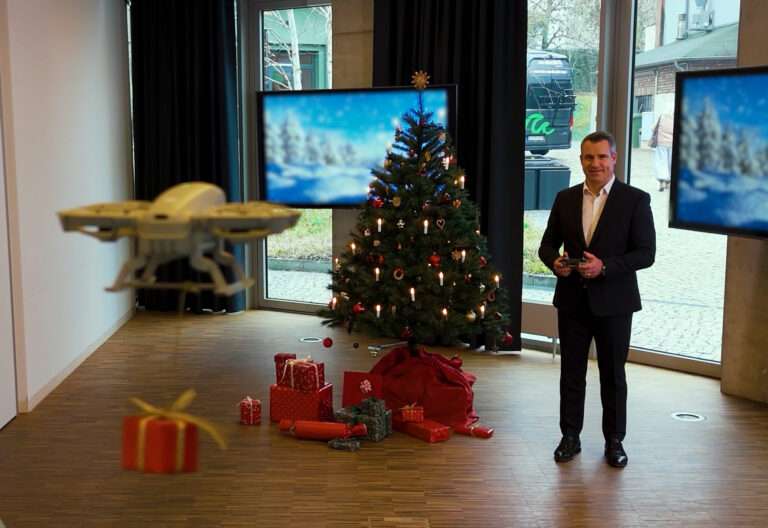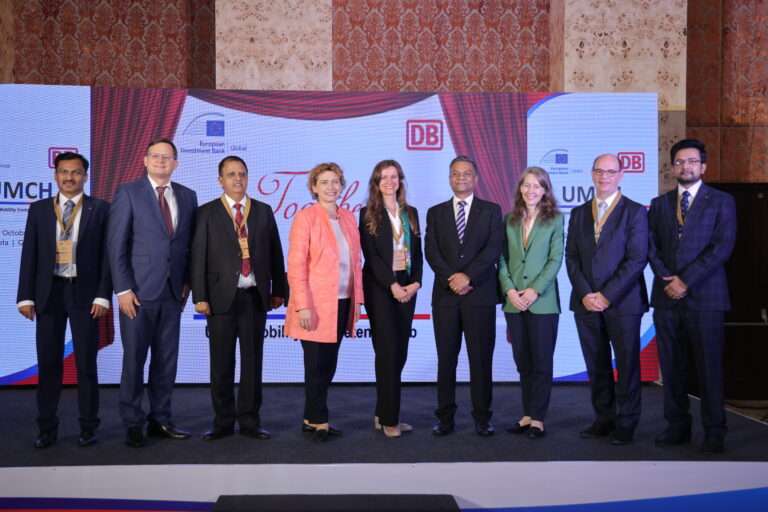Multi-million-euro contract to operate a new regional rapid transit system in India between Delhi and Meerut
DB International Operations, part of the DB E.C.O. Group, has been awarded a contract to manage the operation and maintenance of India´s first regional rapid transit system by National Capital Region Transport Corporation (NCRTC). The project covers a distance of 82 kilometers and will connect the key urban nodes across the National Capital Region to Delhi. State-of-the-art technology will be used, offering great opportunities not only for India, but also for Germany and its rail transport system.
Contact
More information
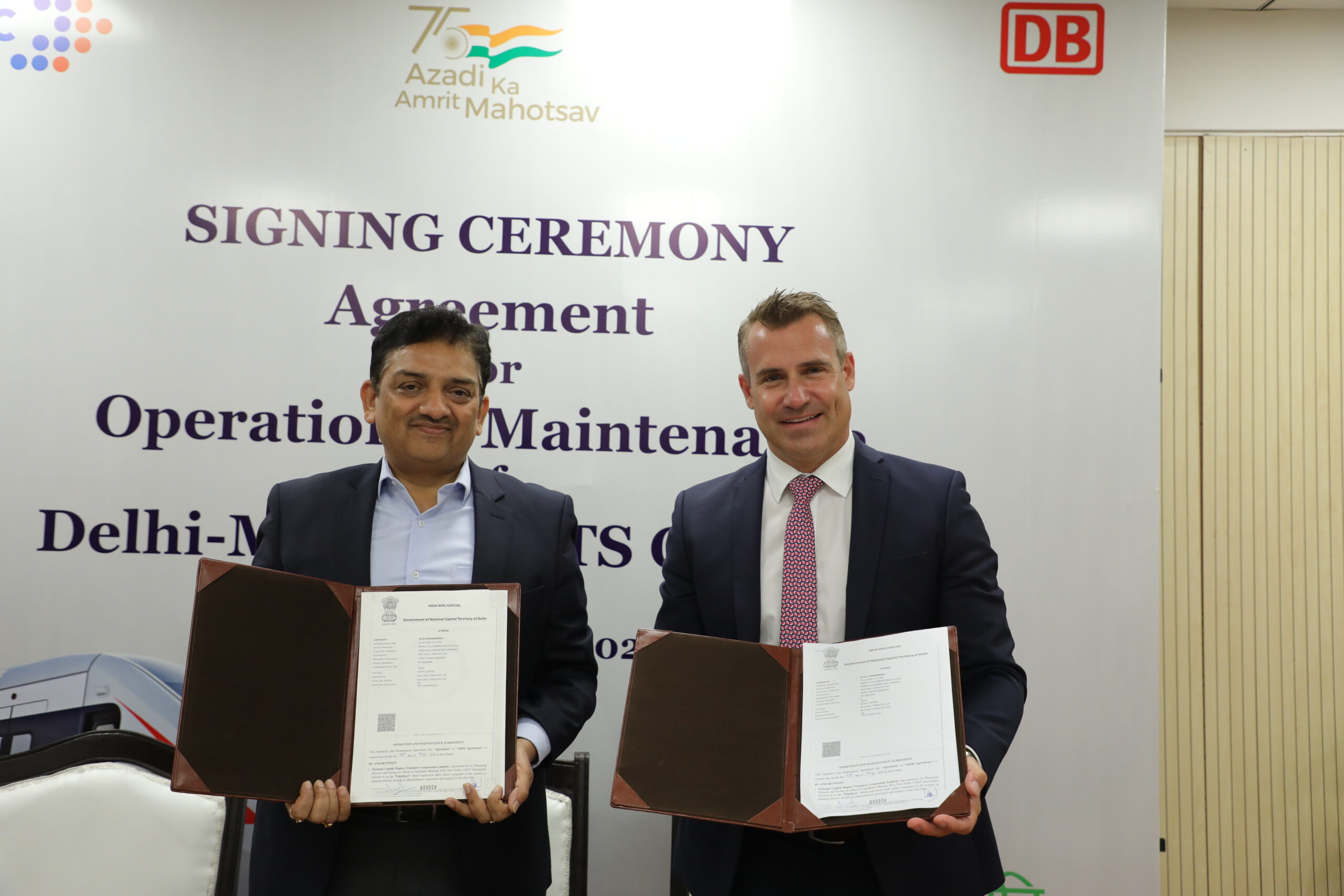
Deutsche Bahn International Operations GmbH (DB IO) has been awarded a multi-million-euro contract for India’s first high-speed commuter transport project. DB IO will be responsible for the operation and maintenance of India´s first regional rapid transit system (RRTS). The project, being implemented by National Capital Region Transport Corporation (NCRTC), a government agency established for this specific purpose, will link up the metropolitan areas of Delhi, Ghaziabad and Meerut.
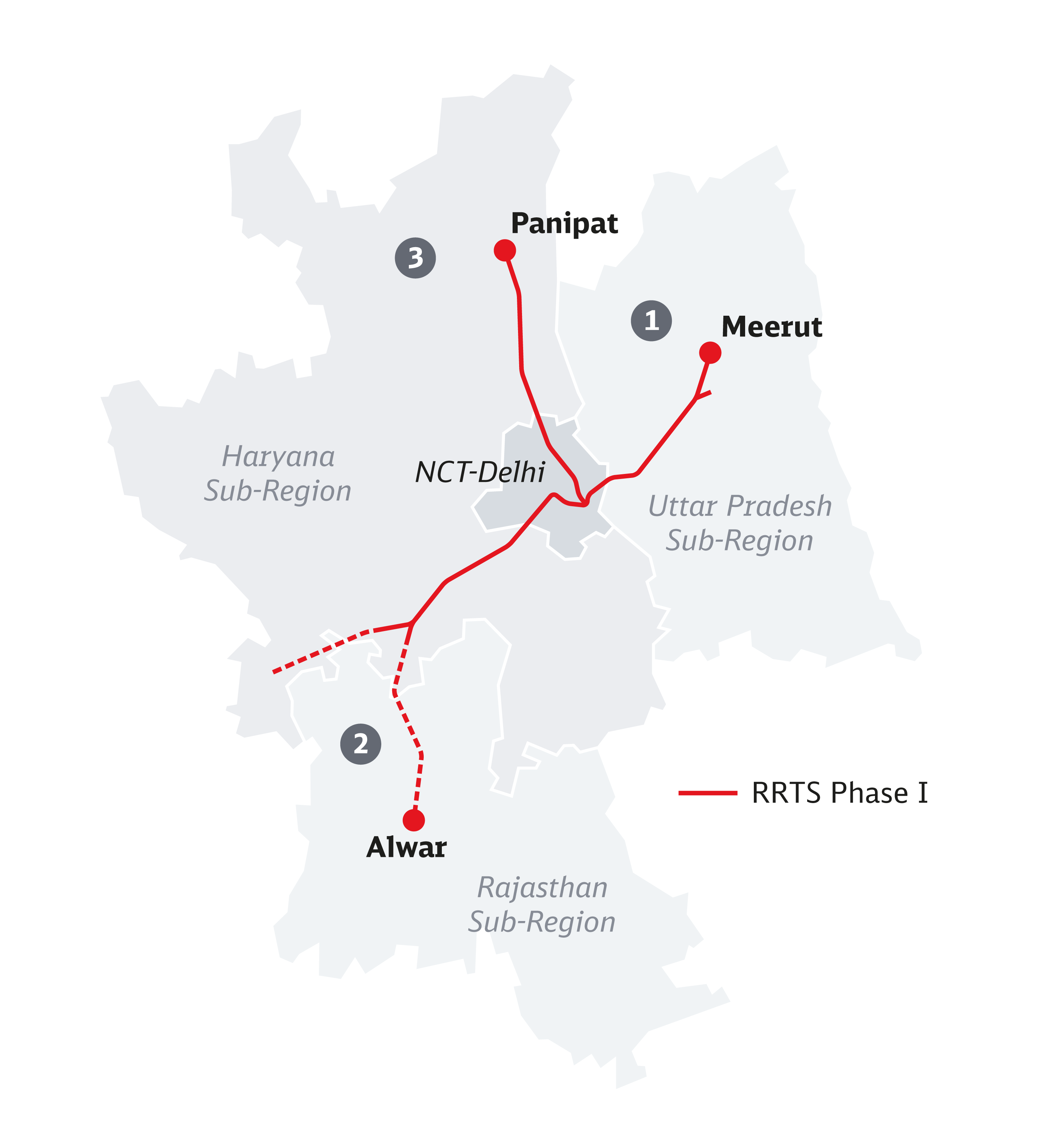
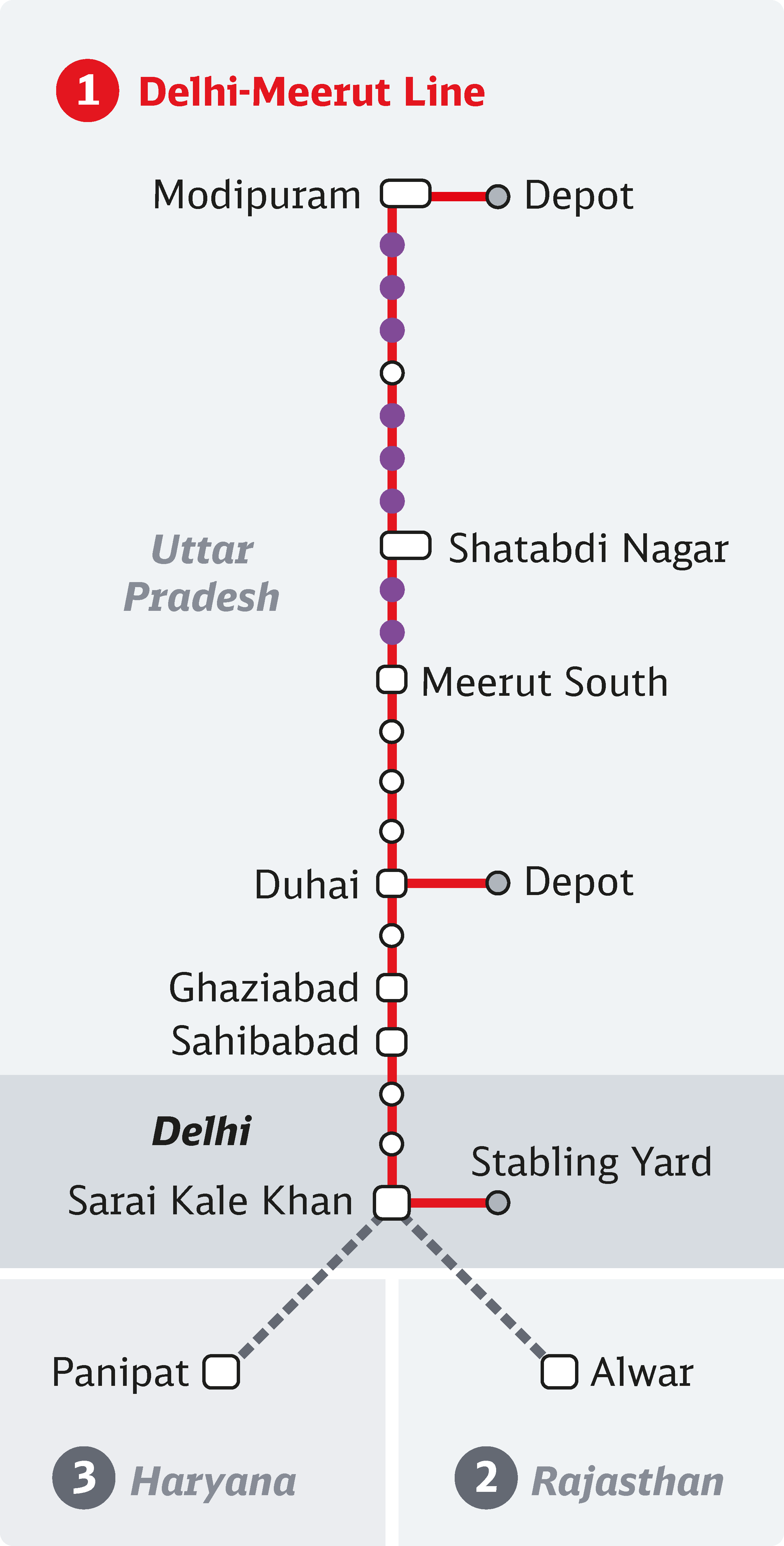
“We are thrilled to have this opportunity to operate the Delhi-Meerut corridor and help foster an Indo-German partnership for green urban mobility,” said Niko Warbanoff, Chairman of the Managing Board of the DB E.C.O. Group, which DB IO belongs to. “This project will enable us to actively support sustainable urban development and help alleviate traffic congestion in one of the world’s largest metropolitan areas, with a population of more than 46 million.”
“At NCRTC, we are looking forward to a mutually beneficial partnership with DB. The RRTS project will benefit from the global expertise and experience of DB in tech-driven operations & predictive maintenance which will help in providing comfortable and safe commute to the passengers. This partnership will bring about a paradigm shift in the O&M of rail-based transit in India which will open up new opportunities for DB. I believe that RRTS, which is a flagship project of the Hon’ble Prime Minister of India, will begin a new chapter for the rail-based transport system in our country.”, said Mr. Vinay Kumar Singh, Managing Director, NCRTC.
Safe, faster travel for millions of people
The rapid transit network will cover 82 kilometers, 25 stations and two depots. The twelve-year contract is worth over a hundred million. DB IO will operate 40 RRTS trains on the Delhi-Meerut RRTS corridor and will also be responsible for maintaining the rail infrastructure. Once fully operational, the network is expected to carry more than 800,000 passengers a day. Operations will be launched in stages beginning in 2023.
India has already planned additional corridors to serve regional needs for infrastructure development and environmentally friendly mobility solutions. And this will be necessary, because the region around India’s capital New Delhi is expected to become the world’s most populous metropolitan area by 2030. Due to the lack of public transportation, a large proportion of people here currently use private vehicles. The rate of motorized vehicle use is growing more than five times as fast as the population.
The new regional rapid transit system will cut travel times between Delhi and Meerut by about 70%. This will benefit millions of commuters and, with air pollution at hazardous levels in many Indian cities, it will benefit the climate and public health as well. The rapid transit system is being introduced as part of a Comprehensive Action Plan (CAP) to control air pollution in Delhi and the National Capital Region.
The state-of-the-art technology and high safety standards being used in the project will make travel in India safer and more convenient.
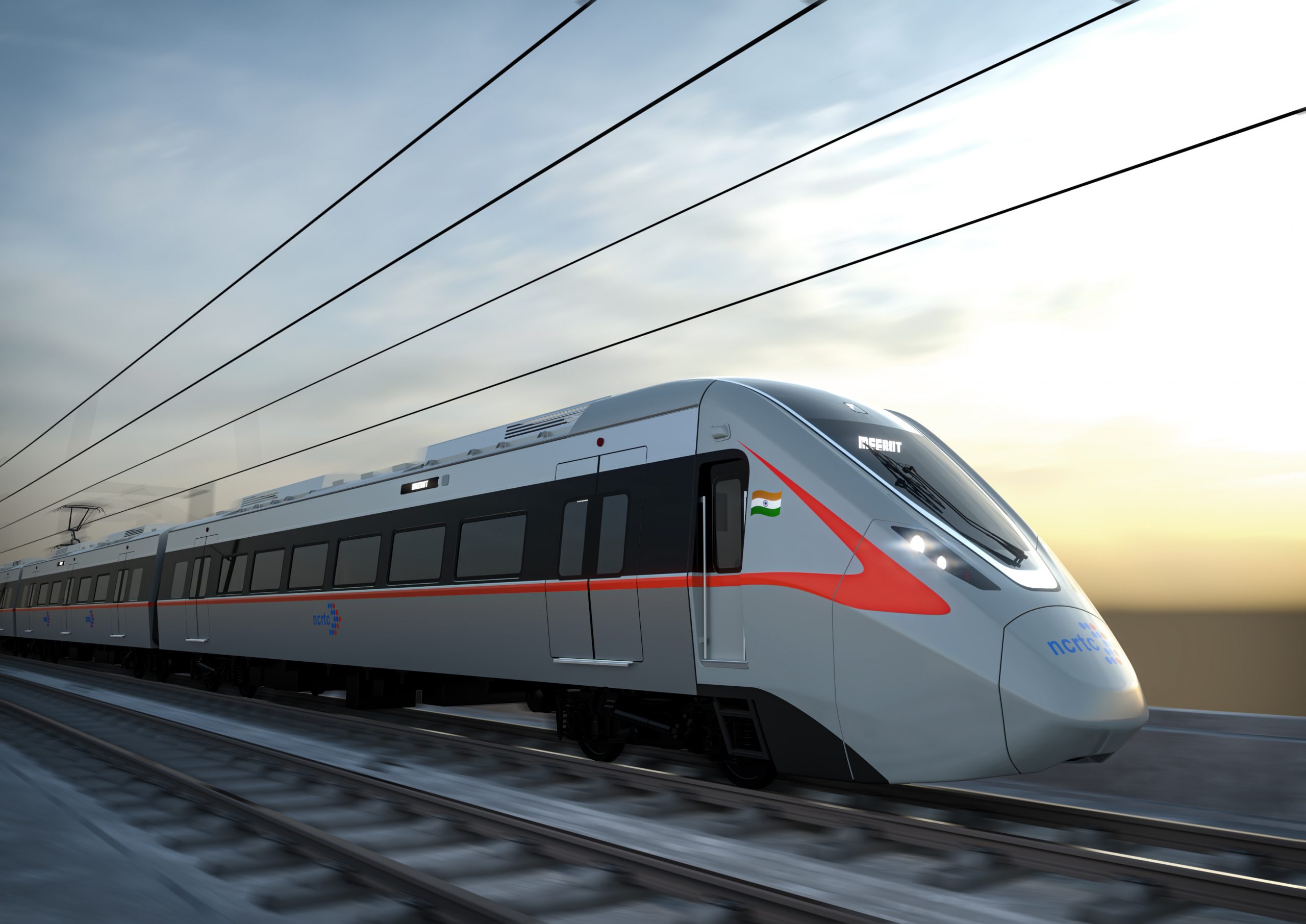 India´s first regional rapid transit system will connect the megacities of Delhi, Ghaziabad and Meerut in the future
India´s first regional rapid transit system will connect the megacities of Delhi, Ghaziabad and Meerut in the futureIndia´s first regional rapid transit system will connect the megacities of Delhi, Ghaziabad and Meerut in the future 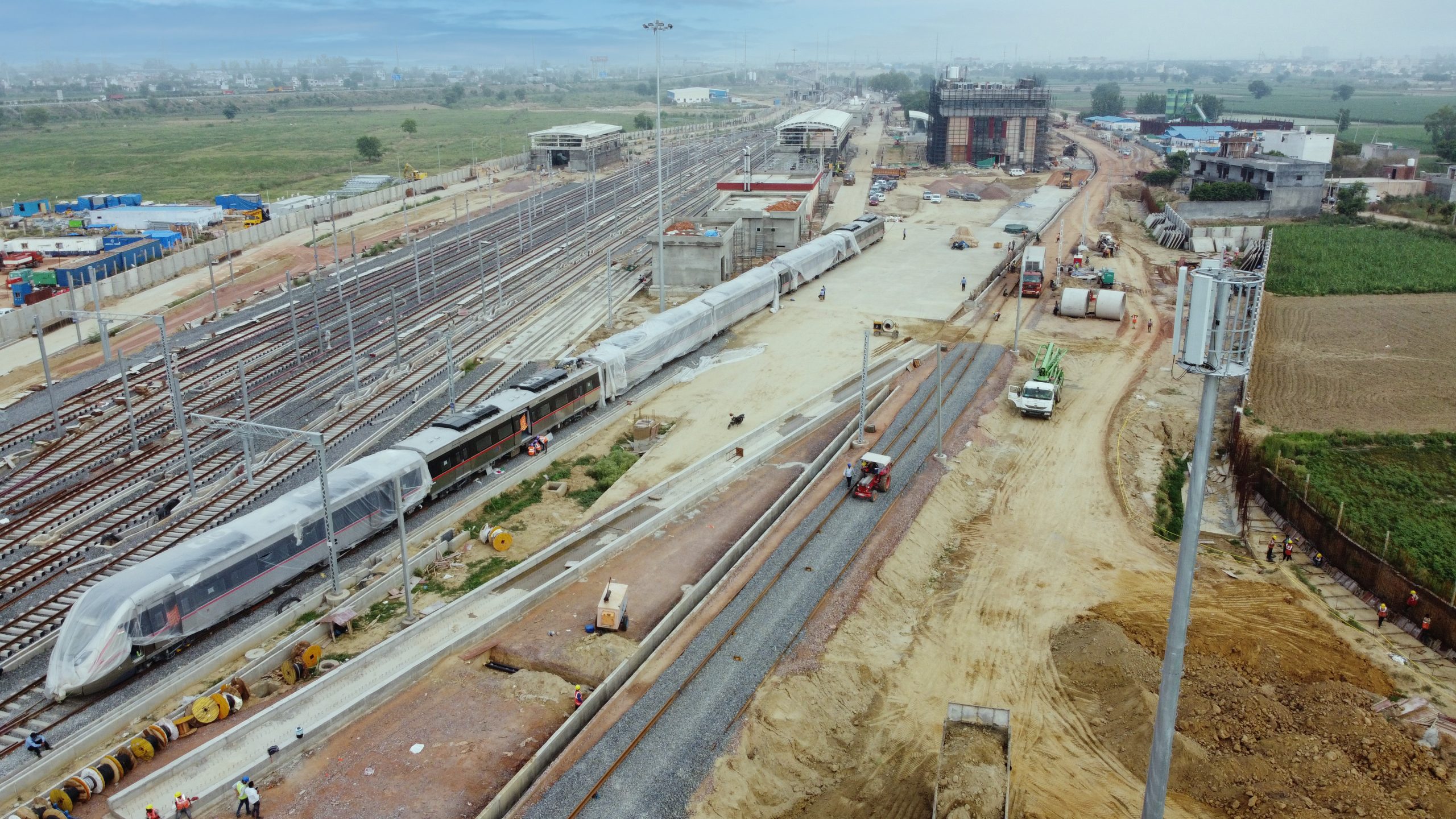 View of a depot
View of a depotView of a depot 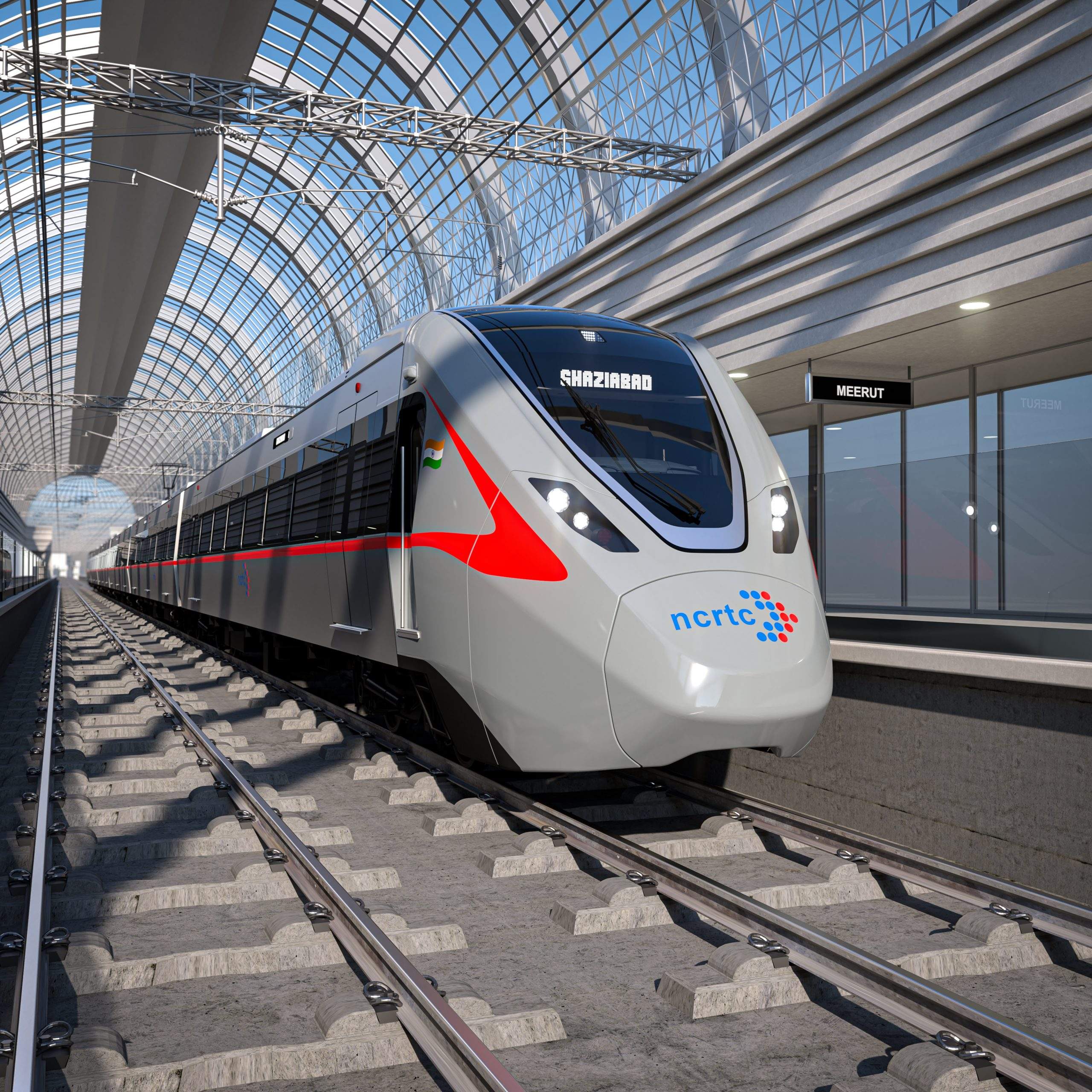 Meerut Station
Meerut StationMeerut Station 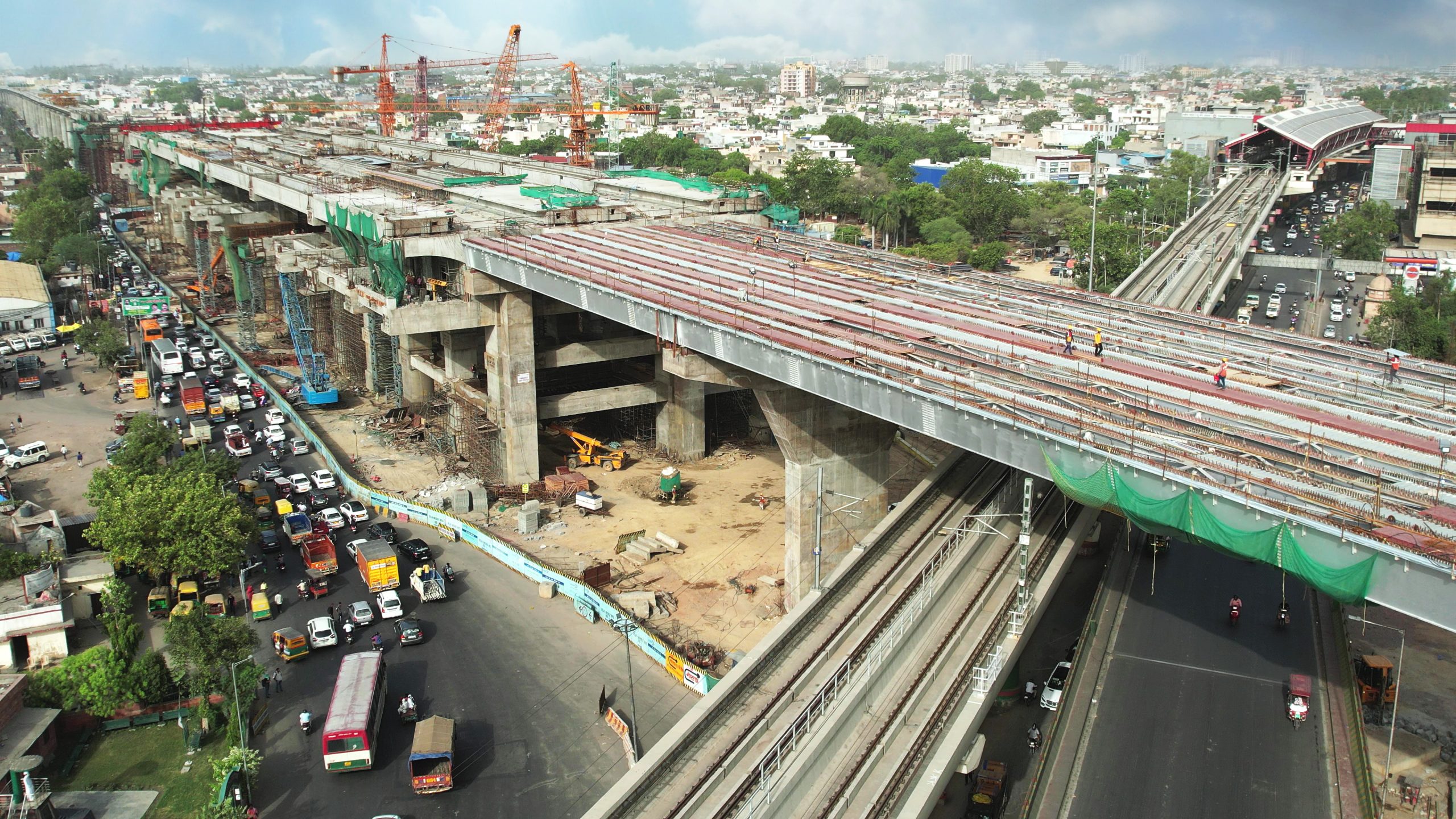 Construction phase of Ghaziabad Station
Construction phase of Ghaziabad StationConstruction phase of Ghaziabad Station 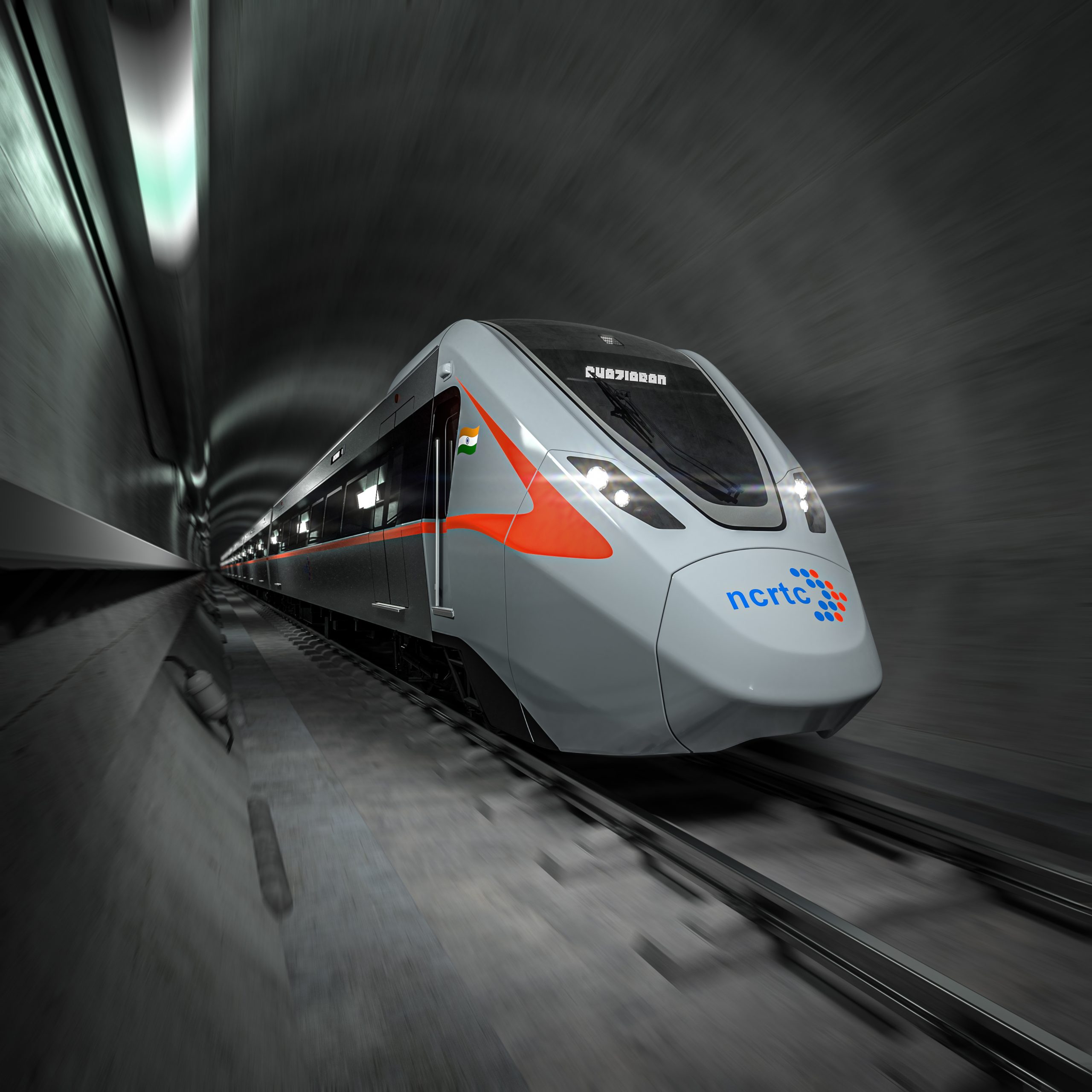 RRTS train on tunnelled section of the new line
RRTS train on tunnelled section of the new lineRRTS train on tunnelled section of the new line
A state-of-the-art technology transfer to Germany
Following on from a contract in Toronto worth billions, the Delhi project is the second major international passenger transport project secured by DB IO in 2022. “We are successfully exporting German railway and climate protection expertise,” said CEO Warbanoff. “And through a transfer of knowledge and technology, we are also adding a great deal of value for rail in Germany.”
The Delhi-Meerut RRTS corridor will be equipped with state-of-the-art ETCS Level 2/Hybrid Level 3 technology in combination with automatic train operation (ATO). This technology is also slated for deployment in Germany soon, including in a project to digitalize rail infrastructure in the Stuttgart area. It allows for train communications based on LTE technology, which is much more effective than conventional GSM. The project is one of the first in the world to use the technology. The knowledge generated from ongoing operations will be continuously shared within the DB Group and used for the successful implementation of projects in Germany, such as the modernization and digitalization of rail hubs in numerous major German cities and metropolitan regions.
Profits generated abroad will go toward strengthening rail in Germany. For as long as the project runs, these profits will be reinvested directly in accelerating the decarbonization of transport in Germany.
